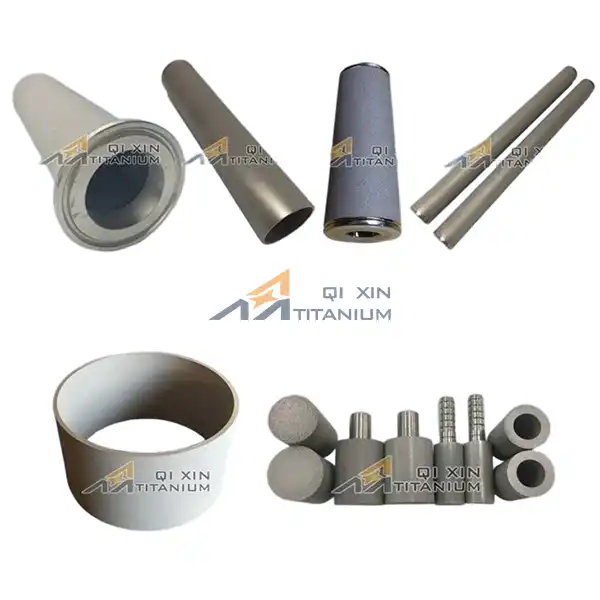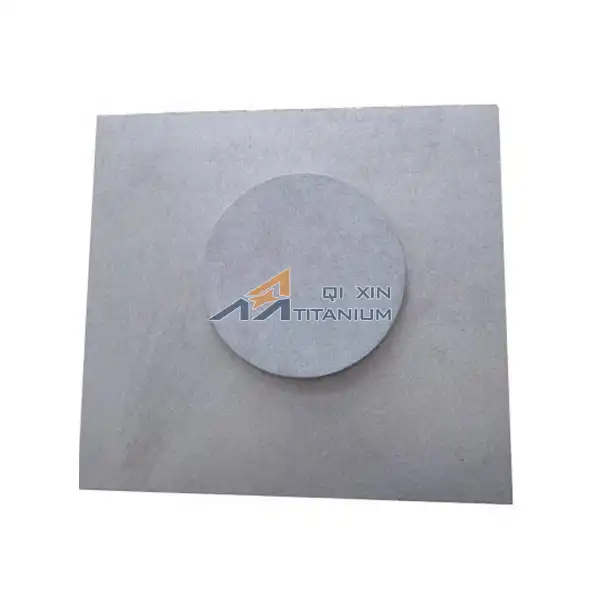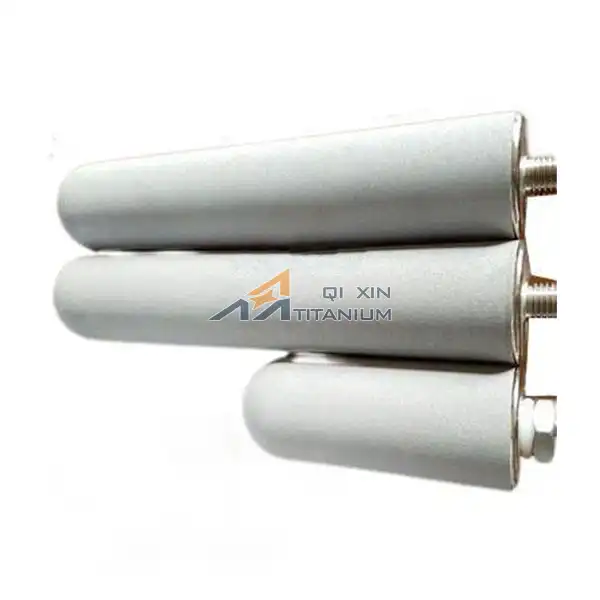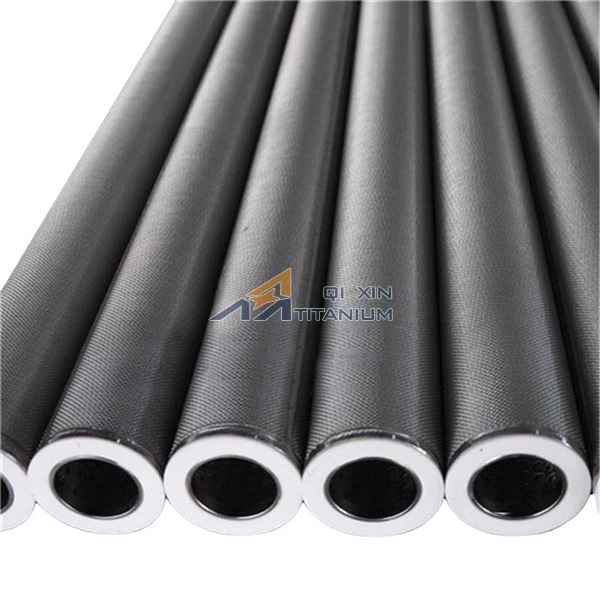What are the typical applications of sintered porous metal filters in the food and beverage industry?
2025-03-27 08:45:42
Sintered porous metal filters play a crucial role in the food and beverage industry, offering a wide range of applications that ensure product quality, safety, and efficiency. These versatile filtration solutions are commonly used in various processes, including liquid and gas filtration, separation, and purification. In the food and beverage sector, sintered porous metal filters for food and beverage are typically employed for removing contaminants from raw materials, filtering process fluids, sterilizing products, and maintaining product consistency. Their ability to withstand high temperatures, resist corrosion, and provide precise filtration makes them ideal for applications such as brewing, winemaking, dairy processing, and bottling operations. By utilizing these advanced filtration systems, manufacturers can improve product quality, extend shelf life, and meet stringent industry regulations.
Advantages of Sintered Porous Metal Filters in Food and Beverage Processing
Superior Filtration Efficiency
Sintered porous metal filters exhibit exceptional filtration efficiency, making them an invaluable asset in food and beverage processing. These filters are engineered with a complex network of interconnected pores, allowing for precise particle retention while maintaining optimal flow rates. The uniform pore structure ensures consistent filtration performance, effectively removing impurities, microorganisms, and other contaminants from liquids and gases. This high level of efficiency is particularly beneficial in applications such as clarifying fruit juices, filtering cooking oils, and purifying carbonated beverages.
Durability and Long Service Life
One of the key advantages of sintered porous metal filter for food and beverage is their outstanding durability and longevity. Constructed from high-quality metals such as stainless steel, titanium, or nickel alloys, these filters can withstand harsh operating conditions commonly encountered in food and beverage processing. Their robust construction allows them to resist corrosion, withstand high temperatures, and maintain structural integrity under pressure. This durability translates to extended service life, reducing maintenance requirements and minimizing production downtime. In applications like dairy processing or beverage bottling, where continuous operation is critical, the long-lasting nature of sintered porous metal filters proves to be a significant advantage.
Easy Cleaning and Sterilization
The food and beverage industry demands stringent hygiene standards, and sintered porous metal filters excel in this aspect. These filters are designed for easy cleaning and sterilization, ensuring compliance with food safety regulations. Their smooth surface and non-reactive properties prevent the accumulation of bacteria and other contaminants, reducing the risk of product contamination. Sintered porous metal filters can be cleaned using various methods, including backflushing, chemical cleaning, and steam sterilization, without compromising their structural integrity. This ease of maintenance is particularly valuable in applications such as wine filtration or milk processing, where regular cleaning cycles are essential to maintain product quality and safety.
Applications in Beverage Production and Bottling
Beer and Wine Filtration
In the brewing and winemaking industries, sintered porous metal filters play a pivotal role in achieving clarity and stability in the final product. These filters are employed at various stages of production, from initial clarification to final polishing. During beer production, sintered porous metal filters are used to remove spent yeast, hop particles, and other solid matter, resulting in a clearer and more visually appealing beverage. In winemaking, these filters help remove tartrates, proteins, and other suspended particles that can affect the wine's appearance and taste. The ability of sintered porous metal filters to handle high flow rates while maintaining excellent filtration efficiency makes them ideal for large-scale beverage production.
Carbonated Beverage Processing
The production of carbonated beverages requires precise control over gas dissolution and particulate removal. Sintered porous metal filter for food and beverage excel in this application due to their ability to withstand high pressures and provide uniform gas dispersion. These filters are commonly used in carbonation systems to ensure the even distribution of carbon dioxide throughout the beverage, resulting in consistent carbonation levels. Additionally, sintered porous metal filters are employed in the final stages of carbonated beverage production to remove any remaining particulates or impurities, ensuring a clean and refreshing final product. The corrosion-resistant properties of these filters make them particularly suitable for handling the acidic nature of many carbonated beverages.
Juice and Smoothie Clarification
In the production of fruit juices and smoothies, sintered porous metal filters play a crucial role in achieving the desired clarity and texture. These filters are used to remove pulp, seeds, and other solid particles from fruit purees and juices, resulting in a smoother and more visually appealing product. The precise pore size control of sintered porous metal filters allows manufacturers to tailor the filtration process to specific product requirements, whether it's creating a clear apple juice or a pulp-free orange juice. The high flow rates achievable with these filters make them suitable for large-scale juice production, while their durability ensures consistent performance even when processing acidic fruit juices.
Food Processing and Safety Applications
Dairy Product Filtration
The dairy industry relies heavily on efficient filtration systems to ensure product quality and safety. Sintered porous metal filters are widely used in various dairy processing applications, from raw milk clarification to cheese production. In milk processing, these filters help remove impurities, somatic cells, and bacteria, improving the overall quality and extending the shelf life of dairy products. During cheese manufacturing, sintered porous metal filters are employed in whey separation and curd formation processes, contributing to consistent texture and flavor profiles. The ability of these filters to withstand high temperatures and resist fouling makes them ideal for the demanding conditions of dairy processing plants.
Edible Oil Purification
Sintered porous metal filter for food and beverage play a crucial role in the purification of edible oils, ensuring the removal of impurities and extending product shelf life. These filters are used in various stages of oil processing, including crude oil filtration, bleaching, and final polishing. The high temperature resistance of sintered porous metal filters makes them suitable for hot oil filtration processes, where they effectively remove particles, waxes, and other contaminants. In vegetable oil production, these filters help achieve the desired clarity and purity, meeting stringent quality standards. The durability of sintered porous metal filters in handling viscous fluids and their resistance to clogging make them an excellent choice for continuous edible oil processing operations.
Ingredient and Additive Filtration
Food and beverage manufacturers often rely on sintered porous metal filters for the precise filtration of ingredients and additives. These filters are used to remove impurities from liquid sweeteners, flavoring agents, and other food additives, ensuring consistent quality and safety. In the production of syrups and concentrates, sintered porous metal filters help achieve the desired clarity and remove any particulate matter that could affect the final product's appearance or taste. The ability to customize pore sizes allows manufacturers to tailor the filtration process to specific ingredient requirements, whether it's removing fine particles from natural colorants or ensuring the purity of liquid emulsifiers. The corrosion-resistant properties of sintered porous metal filters make them suitable for handling a wide range of ingredients, including acidic and alkaline substances.
Conclusion
Sintered porous metal filters have become crucial in the food and beverage industry, advertising a wide extend of applications that upgrade item quality, security, and effectiveness. From beverage clarification to dairy preparing and fixing decontamination, these versatile filtration arrangements play a vital part in assembly the stringent prerequisites of advanced food and beverage generation. Their prevalent filtration efficiency, durability, and ease of upkeep make them an perfect choice for producers seeking to improve their forms and convey high-quality items to consumers. As the industry proceeds to advance, sintered porous metal filters will without a doubt stay at the bleeding edge of filtration innovation, helping companies meet the ever-increasing requests for item purity, consistency, and security in the food and beverage sector.
Contact Us
If you're interested in learning more about how sintered porous metal filter for food and beverage can benefit your food and beverage processing operations, please don't hesitate to reach out to our team of experts. Contact us at info@mmo-anode.com for personalized advice and solutions tailored to your specific needs.
References
Johnson, M. E., & Lucey, J. A. (2006). Major technological advances and trends in cheese. Journal of Dairy Science, 89(4), 1174-1178.
Daufin, G., Escudier, J. P., Carrère, H., Bérot, S., Fillaudeau, L., & Decloux, M. (2001). Recent and emerging applications of membrane processes in the food and dairy industry. Food and Bioproducts Processing, 79(2), 89-102.
Bartlett, M., Bird, M. R., & Howell, J. A. (1995). An experimental study for the development of a qualitative membrane cleaning model. Journal of Membrane Science, 105(1-2), 147-157.
Ribeiro, A. P. B., Bei, N., Guaraldo Gonçalves, L. A., Petrus, J. C. C., & Viotto, L. A. (2008). The optimisation of soybean oil degumming on a pilot plant scale using a ceramic membrane. Journal of Food Engineering, 87(4), 514-521.
Pal, S., Ambastha, S., Ghosh, T. B., De, S., & DasGupta, S. (2008). Optical evaluation of deposition thickness and measurement of permeate flux enhancement of simulated fruit juice in presence of turbulence promoters. Journal of Membrane Science, 315(1-2), 58-66.
Fillaudeau, L., & Carrère, H. (2002). Yeast cells, beer composition and mean pore diameter impacts on fouling and retention during cross-flow filtration of beer with ceramic membranes. Journal of Membrane Science, 196(1), 39-57.
Send Inquiry
Related Industry Knowledge
- What is the filtration rating of metal sintered filters?
- Can sintered metal filter tubes handle high-temperature or high-pressure applications?
- Key Maintenance Tips for Platinum Plated Titanium Mesh Electrodes in Sodium Hypochlorite Generators
- What are the advantages of sintered metal filter cartridges?
- Pharmaceutical Applications: Sintered Metal Filter Discs for Sterile Environments
- How are ICCP Titanium Rod Anodes Installed?
- What are the typical applications of sintered porous metal filters in the food and beverage industry?
- The Science Behind MMO Coated Titanium Strip Electrodes
- How does Iridium Coated Titanium Plate Anode Improve Electrochemical Efficiency or Durability?
- How to install MMO Coated Titanium Strip Electrodes?





